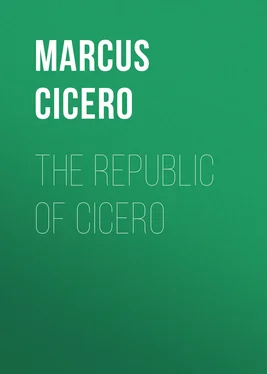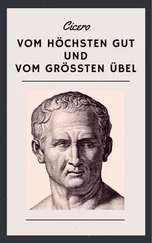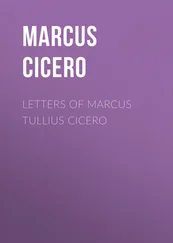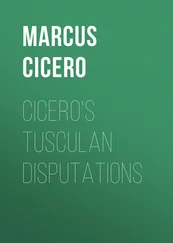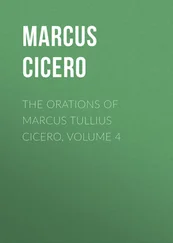Marcus Cicero - The republic of Cicero
Здесь есть возможность читать онлайн «Marcus Cicero - The republic of Cicero» — ознакомительный отрывок электронной книги совершенно бесплатно, а после прочтения отрывка купить полную версию. В некоторых случаях можно слушать аудио, скачать через торрент в формате fb2 и присутствует краткое содержание. Жанр: foreign_antique, Философия, foreign_edu, на английском языке. Описание произведения, (предисловие) а так же отзывы посетителей доступны на портале библиотеки ЛибКат.
- Название:The republic of Cicero
- Автор:
- Жанр:
- Год:неизвестен
- ISBN:нет данных
- Рейтинг книги:5 / 5. Голосов: 1
-
Избранное:Добавить в избранное
- Отзывы:
-
Ваша оценка:
- 100
- 1
- 2
- 3
- 4
- 5
The republic of Cicero: краткое содержание, описание и аннотация
Предлагаем к чтению аннотацию, описание, краткое содержание или предисловие (зависит от того, что написал сам автор книги «The republic of Cicero»). Если вы не нашли необходимую информацию о книге — напишите в комментариях, мы постараемся отыскать её.
The republic of Cicero — читать онлайн ознакомительный отрывок
Ниже представлен текст книги, разбитый по страницам. Система сохранения места последней прочитанной страницы, позволяет с удобством читать онлайн бесплатно книгу «The republic of Cicero», без необходимости каждый раз заново искать на чём Вы остановились. Поставьте закладку, и сможете в любой момент перейти на страницу, на которой закончили чтение.
Интервал:
Закладка:
Scipio in the 43d section, gives an eloquent passage from Plato, where the excesses of the multitude are painted in the strongest language; a passage which might well have been inspired by the French revolution.
Scipio opens the second book with the origin of the Roman people, adopting the received opinions concerning the early history of Rome, of Romulus, and the succeeding kings. These opinions have of late, been much controverted. Niebuhr whose erudition appears to be inimitable, whatever success he may be thought to have had in shaking them, has substituted nothing satisfactory in their place, at least as far as we may gather from his first volume. One thing may be safely asserted, that Cicero might well present in his republic, those traditions of the times, as the real history of his country, because the Roman people were acquainted with no other. He could not call upon them to venerate the founders of Rome and their institutions, and tell them at the same time they had never existed. Niebuhr himself strengthens the account given at section 19, Book II., of the Greek descent of the first Tarquin, by observing that the clay vases made at Tarquinii were painted, and resembled in colour and drawing some discovered near Corinth. He says they are found only in the district of Tarquinii, and that the circumstance implies a peculiar intercourse between Corinth and Tarquinii.
In the 22d section of the 2d Book, is another passage with which Niebuhr is not satisfied, and which even Professor Mai terms “vexatissimum locum.” Cicero says the Roman people were distributed by Servius into six classes, whose entire elective force was one hundred and ninety-three centuries. To give the landed proprietors who were rated in the first class, a majority of this number, or ninety-seven votes, three centuries of horse with six suffrages, meaning those inscribed in the great census or register, in contradistinction to the horsemen set apart from the mass of the whole people; the century of carpenters, and the first class, constituted together eighty-nine centuries. Eight more centuries taken from the other five classes and added to this number, made ninety-seven, being a majority of one over ninety-six, and thus in Cicero’s words “Confecta est vis, populi universa.” The unwearied erudition of Niebuhr, to which great deference is due, is not satisfied with the simplicity of this statement of the Roman Constitution, but assails it with an unusual bitterness of critical spirit. He supposes the passage from its genuine state to have been corrupted by successive transcribers and commentators, to the order in which Professor Mai has thought proper to give it to the public, and that in its original state it stood thus. “Nunc rationem videtis esse talem ut prima classis, addita centuria quæ ad summum usum urbis fabris tignariis est data: LXXXI centurias habeat; quibus ex CXIV centuriis, tot enim reliquæ sunt, equitum centuriæ cum sex suffragiis solæ si accesserunt,” &c.
“Now you will perceive the plan was such, that the first class, a century being added from the carpenters on account of their great utility to the city, consisted of eighty-one centuries; to which if from the one hundred and fourteen centuries, for so many remain, only the centuries of horse with six suffrages are added,” &c. I forbear to add his very curious reasons for this proposed restoration, and which, not to be deemed extravagant, require to be judged by those familiar with the emendations of ancient MSS. It will be perceived, however, that he makes the whole number of centuries to consist of one hundred and ninety-five; and that he gives the landed proprietors a majority of ninety-nine over the ninety-six centuries belonging to the other five classes, which appears superfluous in a system which aimed at the appearance of moderation, “ne superbum esset.” Substantially the system appears to have been this. The Roman people were distributed into six classes, having one hundred and ninety-three centuries or votes. The first class consisting of men of rank and property, with the centuries of horse, had ninety-six votes; leaving ninety-seven votes to the other five classes. In order, however, to give the ascendancy to the first class in the least offensive way, the century of blacksmiths and carpenters was added to the first class, under pretence of their great utility to the city; but really because they were dependent upon the first class and the cavalry for employment, and could be relied upon. In this manner the first class secured a majority of ninety-seven votes. The second book closes with a declaration from Scipio, that unless the most perfect justice is observed, no government can prosper.
The third book opens with a philosophical analysis of the faculties of man, introductory to the great principle of the immutable nature of justice, which it appears was fully discussed in this book, of which so small a portion is preserved. A splendid picture is drawn in the second section of an accomplished statesman, such as Cicero himself had aimed to be, and which from a passage in one of his letters to Atticus, appears to have been farther elaborated in the sixth book. It relates to a triumph about which he felt some anxiety after his government of Cilicia. “If this idea of a triumph which even you approve, had not been infused into me, you would not have had to look far for the perfect citizen described in the sixth book.” 10 10 Let. to Att. vii. 3.
Philus is called upon to defend the cause of injustice after the manner of Carneades the Greek sophist. The powerful passage contained in the seventeenth section is delivered by him. It was reserved for Lælius to close the discussion as the advocate of justice. Scarce any part of his discourse is preserved. Some fragments have, however, been collected by Professor Mai, preserved by Nonius the Philologist, and by Lactantius. In the one, Lælius is made to declare, that the Roman youth ought not to be permitted to listen to Carneades, who if he thought as he spoke, was a bad man; and if he was not, as he preferred to believe, his discourse was nevertheless detestable. One of the passages from Lanctantius is that well known exposition of eternal right, or natural law of justice of which conscience is the voice.
“There is indeed a law, right reason, which is in accordance with nature; existing in all, unchangeable, eternal. Commanding us to do what is right, forbidding us to do what is wrong. It has dominion over good men, but possesses no influence over bad ones. No other law can be substituted for it, no part of it can be taken away, nor can it be abrogated altogether. Neither the people or the senate can absolve us from it. It wants no commentator or interpreter. It is not one thing at Rome, and another thing at Athens: one thing to-day, and another thing to-morrow; but it is a law eternal and immutable for all nations and for all time. God, the sole Ruler, and universal Lord, has framed and proclaimed this law. He who does not obey it, renounces himself, and is false to his own nature: he brings upon himself the direst tortures, even when he escapes human punishments.” 11 11 Lact. Inst. vi. 8.
The fourth book of which a mere fragment is preserved, appears to have treated of domestic manners, the education of youth, and of Roman life, public and private. We have lost here many fine pictures of the simplicity of Roman manners, at that flourishing period of the republic, as well as of the progress of luxury, which was not inconsiderable. A fragment of this book is preserved in Nonius, where Scipio opposes the collection of a revenue, necessary perhaps to make good those deficiencies which extravagance had produced. “Nolo enim eundem populum imperatorem et portitorem esse terrarum. Optimum autem et in privatis familiis et in republica vectigal duco esse parsimoniam.” “I am not willing that the same people should be the sovereigns and the toll-gatherers of the world. I look upon economy to be the best revenue for the republic, and for private individuals.”
Читать дальшеИнтервал:
Закладка:
Похожие книги на «The republic of Cicero»
Представляем Вашему вниманию похожие книги на «The republic of Cicero» списком для выбора. Мы отобрали схожую по названию и смыслу литературу в надежде предоставить читателям больше вариантов отыскать новые, интересные, ещё непрочитанные произведения.
Обсуждение, отзывы о книге «The republic of Cicero» и просто собственные мнения читателей. Оставьте ваши комментарии, напишите, что Вы думаете о произведении, его смысле или главных героях. Укажите что конкретно понравилось, а что нет, и почему Вы так считаете.
